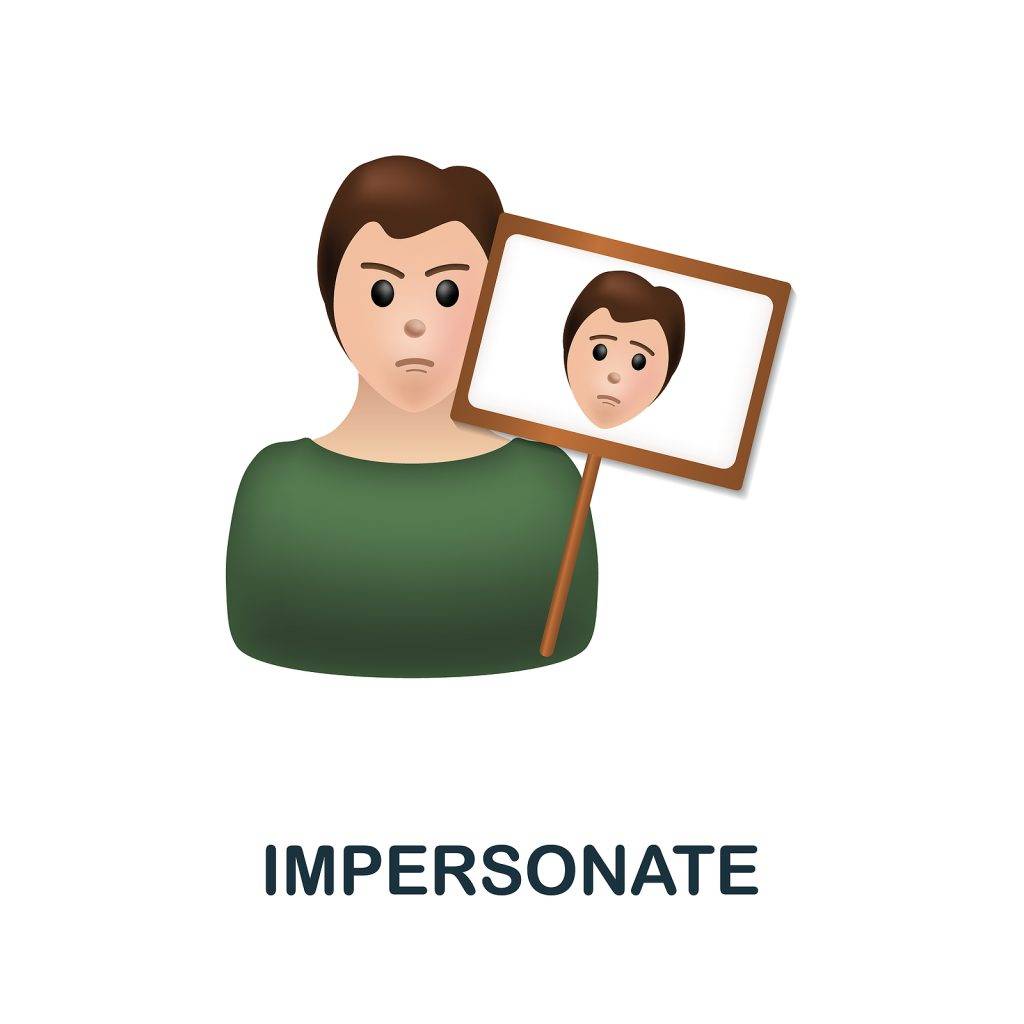So today we will show Voice AI Scam Exposed in today’s digital era, voice AI technology has become increasingly popular, making our lives more convenient and efficient. However, with the rise in its usage, scammers have found a new way to exploit unsuspecting users. In this eye-opening article, we will delve into the world of voice AI scams and uncover the red flags you need to watch out for to protect yourself.
Table of Contents
Voice AI Scam Exposed
From fake virtual assistants to deceptive phone calls, scammers constantly evolve their tactics to trick people into revealing sensitive information. These fraudulent schemes often target individuals unfamiliar with the technology or its potential risks. As experts in the field, we aim to educate and empower readers by providing them with essential knowledge to identify and avoid falling victim to these scams.

By understanding the warning signs and arming yourself with the right information, you can confidently navigate the world of voice AI technology and stay one step ahead of scammers. Join us as we expose these scams and equip you with the tools to protect yourself and your loved ones. Stay tuned to learn how to spot the red flags and safeguard your personal information.
Common types of voice AI scams exposed
Voice AI scams come in various forms, each with its own deceptive techniques. Knowing the different types of scams is crucial in identifying potential threats. Here are some common types of voice AI scams to be aware of:
1. Fake Virtual Assistants: Scammers create fake virtual assistants that mimic popular voice AI platforms like Siri, Alexa, or Google Assistant. These imposters may ask for personal information or attempt to make unauthorized transactions.
2. Phishing Calls: Scammers make phone calls that appear to be from legitimate companies or government agencies, using voice AI technology to mimic real voices. They may ask for sensitive information, such as social security numbers or credit card details.
3. Voice Cloning: Scammers can clone someone’s voice and create realistic audio recordings using advanced voice AI technology. They may use these recordings to deceive individuals into believing they are speaking with a trusted person, such as a family member or a company representative.
These are just a few examples of voice AI scams, but scammers are constantly adapting and developing new tactics. It’s important to stay informed and vigilant to protect yourself from falling victim to these scams.

Red flags to watch out for Voice AI Scam Exposed
While voice AI scams can be sophisticated, there are red flags that can help you identify potential fraudulent activities. By recognizing these warning signs, you can avoid becoming a victim. Here are some red flags to watch out for:
1. Unsolicited Requests for Personal Information: Legitimate voice AI platforms will never ask for sensitive information, such as passwords or social security numbers unless it is part of a verified process. Be wary of any requests for personal information that seem out of the blue or suspicious.
2. Pressure Tactics: Scammers often use high-pressure tactics to create a sense of urgency and manipulate individuals into taking immediate action. They may claim that there is an issue with your account or that you will face consequences if you don’t comply. Legitimate companies will never rush or pressure you to provide personal information.
3. Poor Grammar or Robotic Speech: Fake virtual assistants or scammers using voice AI technology may exhibit poor grammar or sound robotic. Legitimate voice AI platforms have advanced natural language processing capabilities and will speak fluently and naturally.
These are just a few red flags to watch out for but trust your instincts. If something feels off or too good to be true, it’s important to proceed cautiously.
Real-life examples of voice AI scams Exposed
To better understand the impact of voice AI scams, let’s look at some real-life examples of how individuals have fallen victim to these fraudulent schemes.
1. The Fake Tech Support Call: Jane received a phone call from someone claiming to be a tech support representative from a well-known company. The caller used voice AI technology to mimic the company’s voice, making it seem legitimate. They asked Jane for her credit card details to fix a supposed issue with her computer. Unfortunately, Jane fell for the scam and lost significant money.
2. The Impersonated Family Member: John received a phone call from someone claiming to be his grandson. The caller used voice AI technology to clone John’s grandson’s voice and asked for money, claiming to be desperate. Without questioning further, John thought he was helping his grandson and sent the requested funds. It wasn’t until later that he realized he had been scammed.
These examples highlight the deceptive nature of voice AI scams and how scammers can exploit people’s trust and emotions. It’s crucial to stay vigilant and verify any suspicious requests before taking any action.

How scammers use voice AI technology
Scammers have become adept at leveraging voice AI technology for fraudulent activities. Understanding how they use this technology can help you better protect yourself. Here are some ways scammers utilize voice AI technology:
1. Voice Cloning: Scammers can use voice AI technology to clone someone’s voice and create realistic audio recordings. This allows them to impersonate trusted individuals, such as family members or company representatives, to gain your trust and extract sensitive information.
2. Automated Scam Calls: Voice AI technology enables scammers to automate their scam calls, making it easier for them to target many individuals. These automated calls may sound convincing, leading unsuspecting victims to provide personal information or make financial transactions.
3. Creating Fake Virtual Assistants: Scammers may create their own virtual assistants that mimic popular voice AI platforms. These fake assistants can be used to deceive individuals into sharing personal information or performing actions that compromise their security.
By understanding how scammers use voice AI technology, you can be more cautious when interacting with virtual assistants or receiving phone calls from unknown sources.
Steps to protect yourself from voice AI scams
Protecting yourself from voice AI scams requires a proactive approach. By following these steps, you can significantly reduce the risk of falling victim to these fraudulent activities:
1. Educate Yourself: Stay informed about the latest voice AI scams and scammers’ tactics. Regularly read news articles, blog posts, and official announcements to stay up to date with the evolving landscape of voice AI scams exposed.
2. Verify Requests: If you receive a request for personal information or a financial transaction, independently verify the request before taking any action. Contact the company or individual directly using a trusted phone number or email address to confirm the request’s legitimacy.
3. Secure Your Devices: Keep your voice AI devices and smartphones updated with the latest security patches. Use strong, unique passwords for your voice AI accounts, and enable two-factor authentication whenever possible.
4. Be Skeptical of Unsolicited Calls: Be cautious if you receive a phone call from an unknown number or an unfamiliar voice. Do not provide personal information or conduct financial transactions without verifying the caller’s identity.
5. Report Suspicious Activity: If you encounter a voice AI scam or suspect fraudulent activity, report it to the appropriate authorities. This helps raise awareness and prevent others from falling victim to similar scams.
By implementing these steps, you can create a strong defense against voice AI scams and protect your personal information and financial well-being.
Reporting voice AI scams to authorities
If you encounter a voice AI scam or suspect fraudulent activity, it’s important to report it to the appropriate authorities. Reporting scams not only helps protect yourself but also aids in investigating and preventing future scams. Here are some resources to report voice AI scams:
1. Local Law Enforcement: Contact your local police department or law enforcement agency to report voice AI scams. Provide them with as much information as possible, including details of the scam and any relevant recordings or messages.
2. Federal Trade Commission (FTC): File a complaint with the FTC through their official website. The FTC collects data on scams and investigates fraudulent activities, helping to protect consumers from financial losses.
3. Internet Crime Complaint Center (IC3): The IC3 is a partnership between the Federal Bureau of Investigation (FBI) and the National White Collar Crime Center (NW3C). You can submit a complaint to the IC3 online, reporting voice AI scams and other cybercrimes.
Remember, reporting scams is crucial in combating fraud and protecting others from falling victim to similar schemes.
Resources for further information and assistance
To further educate yourself about voice AI scams and seek assistance, here are some resources you can explore:
1. Official Voice AI Platform Websites: Visit the official websites of popular voice AI platforms like Siri, Alexa, or Google Assistant. These websites often provide information about security features, privacy settings, and tips to stay safe.
2. Consumer Protection Organizations: Organizations like the Better Business Bureau (BBB) and the Consumer Financial Protection Bureau (CFPB) offer resources and guidance on protecting yourself from scams. They may also have specific information on voice AI scams and how to report them.
3. Cybersecurity Blogs and Forums: Explore reputable cybersecurity blogs and forums that cover voice AI scams. These sources often provide in-depth analysis, tips, and real-life case studies to help you stay informed and make informed decisions.
Utilizing these resources lets you stay informed about the latest voice AI scams, learn how to protect yourself, and seek assistance when needed.
Case studies of individuals who fell victim to voice AI scams
While educating ourselves about voice AI scams is essential, learning from real-life case studies can provide valuable insights into the devastating consequences of these scams. Here are a few examples:
1. The Elderly Victim: Mr. Johnson, an elderly individual, received a call from someone claiming to be his bank. The caller used voice AI technology to mimic the bank representative’s voice and convinced Mr. Johnson to disclose his online banking credentials. As a result, his entire savings were drained from his account.
2. The Business Owner: Sarah, a small business owner, received an email from what appeared to be her accountant. The email asked for her business’s financial information, including tax documents. Unbeknownst to Sarah, the email was a phishing attempt where scammers used voice AI technology to mimic her accountant’s email address. The scammers gained access to sensitive financial data, causing significant damage to Sarah’s business.
These case studies highlight the importance of staying vigilant and verifying any requests for sensitive information, even if they appear to be from trusted sources.
Conclusion: Staying vigilant in the age of voice AI scams
As voice AI technology evolves and becomes more integrated into our daily lives, scammers will adapt their tactics to exploit unsuspecting individuals. It’s crucial to stay vigilant, educate ourselves about the risks, and protect our personal information proactively.
By understanding the common types of voice AI scams, recognizing red flags, and following the steps to protect ourselves, we can reduce the risk of falling victim to these fraudulent activities.
Reporting scams to the appropriate authorities and utilizing available resources can help combat voice AI scams and protect others.
Remember, the power to stay safe lies in our hands. Let’s be proactive, stay informed, and protect ourselves and our loved ones from voice AI scams. Together, we can create a safer digital environment. One tool that can help you is BitDefender.
Read more – Stay Safe Alert Reviews Don’t Get Fooled by AI Scams








